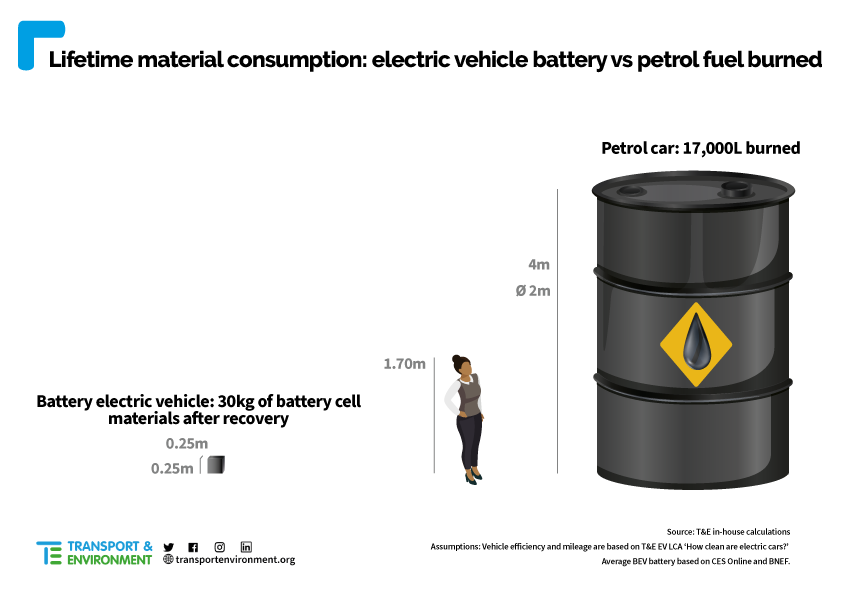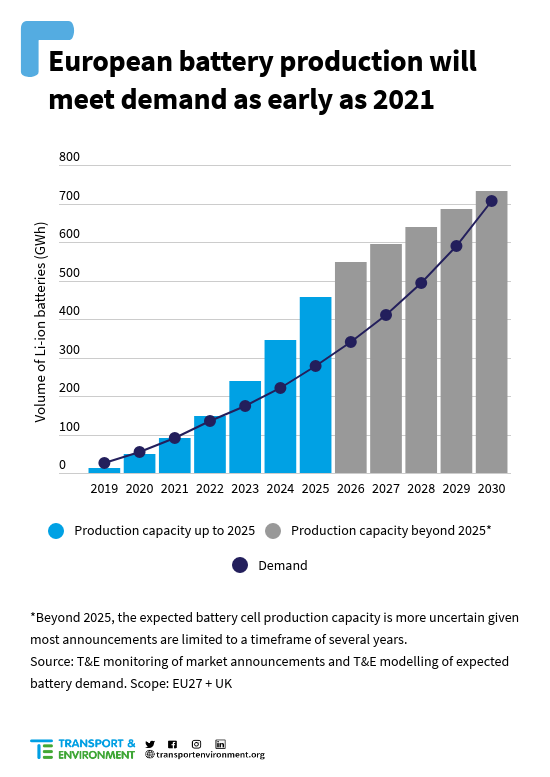On March 1st, 2021, a non-governmental organization committed to promoting green transportation in Europe, Transport & Environment, released comparative statistics on the raw materials consumption of electric and fuel vehicles on its website.
According to the organization, with current recycling efficiency, an electric car battery only requires 30 kg of metal raw materials to be mined, while a fuel car burns 17,000 liters of petrol or diesel during its lifetime.
The organization also presented three prospects for the European battery manufacturing situation:
-
The amount of raw materials required for batteries will decrease. With technological advances, lithium, cobalt, and nickel usage for an electric car will be reduced by 50%, 75%, and 20%, respectively, 10 years later.
-
The demand for imported raw materials in Europe will gradually decrease. By 2035, over 50% of lithium and nickel, and 65% of cobalt will come from recycled materials.
-
In 2021, the European market for battery production will achieve self-sufficiency. In 2025 and 2030, Europe will have the battery production capacity of 460 GWh and 700 GWh, respectively.
The energy consumption of pure electric vehicles during their lifespan is 58% lower than that of fuel vehicles. In terms of emissions, even in Poland, the least clean energy country in Europe, the carbon dioxide emissions of pure electric vehicles are 22% lower than that of fuel vehicles.
🔗Information source: Transport and Environment


This article is a translation by ChatGPT of a Chinese report from 42HOW. If you have any questions about it, please email bd@42how.com.
